Upgrade to full Dispatch membership to unlock the full version of this newsletter—and unlimited access to all our reporting and analysis. Join The Dispatch today.
Happy Tuesday! A hospital in Ibiza, Spain, has a therapy horse that plays a keyboard to wake up children from anesthesia. No fingers necessary: The miniature horse, Black Pearl, simply rubs her muzzle across the keys. We do wonder how many patients woke up to see Black Pearl on the keyboard piano and thought, “Maybe we need more time for these drugs to wear off.”
Quick Hits: Today’s Top Stories
- Japan’s Liberal Democratic Party lost seats across Japan’s bicameral legislature in the country’s election on Sunday, with its majority coalition projected to lose control of the upper house. Japanese Prime Minister Shigeru Ishiba, a Liberal Democrat, acknowledged the election’s “harsh results” late Sunday night, but said he would not step down and will remain in office. The Liberal Democrats’ coalition won 47 of the upper chamber’s 248 seats, shy of the 50 seats necessary to secure the upper chamber, while Japan’s main opposition party, the Constitutional Democratic Party, finished second with 22 seats. Sanseito—a new, far-right party that began as a YouTube channel in 2019—finished in third place in the upper house, winning 14 seats.
- Russia unleashed another overnight drone and missile attack across Ukraine on Monday, killing two people and wounding 15 others, including a 12-year-old child. The Ukrainian Air Force said Russia launched a total of 426 drones and 24 missiles, which Ukrainian President Volodymyr Zelensky said targeted civilian structures. “In Kyiv, a kindergarten caught fire,” Zelensky stated. He added that Ukrainian and Russian officials are set to meet in Turkey on Wednesday for another round of ceasefire negotiations.
- The Israel Defense Forces on Monday conducted airstrikes on Al Hudaydah, Yemen—a Red Sea port city controlled by the Iranian-backed Houthi terrorists—in an operation to destroy “military infrastructure” and in retaliation for repeated Houthi attacks on Israel and commercial vessels traversing the Red Sea. On Sunday, the chief executive of the port in Eilat, a southern Israeli city on the Red Sea, said commercial activity has dropped 90 percent since October 7, 2023, after the Houthis began attacks on international shipping in solidarity with Hamas. In the last two weeks, the group has also launched more than a half dozen ballistic missiles and at least two drones at Israel, including a missile Tuesday morning that was intercepted by air defenses.
- Defense Secretary Pete Hegseth on Monday ordered the withdrawal of all 700 Marines that President Donald Trump deployed to Los Angeles to protect federal buildings and employees last month, in response to protests and riots that followed Immigration and Customs Enforcement raids. The decision, according to Pentagon spokesman Sean Parnell, was made because the situation has stabilized. Last week, the Defense Department removed 2,000 California National Guardsmen from duty in Los Angeles, half of the force activated there.
- The National Archives on Monday published more than 6,000 documents related to the assassination of civil rights leader Martin Luther King Jr. in 1968, following Trump’s January executive order directing the release of records on the assassinations of King, President John F. Kennedy, and his brother, Sen. Robert F. Kennedy. While more than 240,000 pages in total were made available to the public, the trove does not appear to include any major new details on King’s murder. The material includes investigators’ written notes, and intelligence gathered during the manhunt for James Earl Ray, King’s killer.
- A Bangladesh Air Force jet crashed in the capital city of Dhaka on Monday, striking a two-story building on the Milestone School and College campus. At least 20 people, including the pilot, were killed. More than 100 others, mostly college students, were also injured in the crash. A Bangladesh military spokesman said the plane experienced a mechanical issue after taking off, adding that the pilot—who was participating in a training exercise—made “every effort to divert the aircraft away from densely populated areas toward a more sparsely inhabited location.”
Powell in Peril

Treasury Secretary Scott Bessent may have come to the U.S. economy’s rescue once again. Whether the intervention will hold is another question.
Bessent reportedly persuaded President Donald Trump—for the second time—not to fire Federal Reserve Chair Jerome Powell, explaining that the move could disrupt the economy and invite a protracted legal conflict. Trump, however, shot down the reports of Bessent’s involvement in the decision. “I know better than anybody what’s good for the Market, and what’s good for the U.S.A.,” he wrote in a Truth Social post on Sunday. “People don’t explain to me, I explain to them!”
No matter who did the explaining, Powell’s job still isn’t exactly safe. On Monday, Bessent called for an examination of the entire Federal Reserve to see “whether they have been successful,” adding to a slew of conflicting signals from the White House regarding whether Powell will be allowed to finish his four-year term, which ends next May. Last week, Trump met with a group of GOP House members to discuss removing Powell, even showing them a draft of a letter firing the Fed chairman. But the next day, Trump backed off.
“We’re not planning on doing it,” Trump said, while still keeping the door open to a possible removal for “fraud.” The mixed messages haven’t alleviated fears that the Trump administration could end the Fed’s independence, and if it were to fire Powell, it could spark massive unintended economic consequences.
It’s no secret that Trump wants an interest rate cut. For months, Trump has called for lower interest rates to boost the economy and offset the impact of his administration’s tariffs and the ballooning cost of servicing the debt. He even suggested that the Fed lower its rate benchmark to 1 percent, a roughly 300 basis-point drop from current levels.
Powell, however, has maintained that the Fed is not ready to cut rates yet. Inflation is still above the central bank’s target of 2 percent, and it could climb upwards as the ripple effects of the Trump administration’s tariffs work their way through the economy. According to June’s inflation numbers, that might already be happening. The Consumer Price Index (CPI), which tracks the cost of goods and services, rose 0.3 percent in June and 2.7 percent annually, the highest inflation rate since February.
“This is very much the tariff effect that people expected,” Tara Sinclair, professor of economics and international affairs at George Washington University, told TMD. The Federal Open Market Committee (FOMC) is meeting at the end of the month, but it is widely expected to hold rates steady.
To Trump, the solution seems to be ousting Powell, but firing the Fed chair is more complicated than it sounds. According to a 1935 Supreme Court ruling, presidents can remove board members of independent federal agencies only “for cause,” often interpreted to mean breaking the law or significant misconduct. And the sitting Supreme Court suggested this year that the president does not have the power to fire members of the Fed. But the White House might have found a workaround.
The administration has begun targeting Powell over his handling of the Fed’s $2.5 billion renovation of its headquarters, with Trump suggesting that Powell committed fraud in the project the White House has called excessively expensive. The Fed maintains that the project went over budget due to unexpected construction difficulties, such as asbestos and soil contamination, but Office of Management and Budget Director Russell Vought sent a letter to Powell suggesting that the Fed chair either misled Congress about the project or failed to notify the correct officials about changes to the renovation plan.
The Trump administration appeared to be laying the groundwork to fire Powell over the renovation earlier this month. Trump quietly removed former President Joe Biden’s appointees to the National Capital Planning Commission, the panel that oversees urban planning in Washington, D.C., and replaced them with loyalists.
“We should not be made fools of,” Trump’s deputy chief of staff James Blair—one of the new appointees—said in his opening speech to the commission. He aggressively criticized Powell and the renovation, calling for a full review of the project’s plans. Vought also accused the Fed of violating the National Capital Planning Act, which established the commission in its current form. Powell, for his part, has reportedly asked the Fed’s inspector general to review the renovation.
Despite any preparation to fire Powell, Trump has abstained so far. But that doesn’t mean his threats haven’t rattled investors. While the stock market has remained stable, bond yields jumped higher and the value of the dollar slipped when it seemed like Powell’s removal was imminent. “Every time that we get news that it might be a little bit more likely that the president might fire Powell, bond markets go crazy,” Sinclair said.
Fed policymakers still expect to cut rates by 25 basis points twice this year, although they will be keeping an eye on tariff disruptions. That would still be far from the president’s 1 percent target.
Even without firing Powell, Trump could still appoint a more politically responsive chairman after Powell’s term ends. Such a move would be a hit to the Fed’s independence from political interference. “If we in any way allow the decisions around monetary policy to take into consideration political pressures, those political pressures are always going to be for interest rates to be lower. That’s what they always want because that helps them in the short run,” Sinclair said. “In the longer run, that means higher inflation.” Lower rates can boost the economy, spurring borrowing and spending, but increased demand for services and goods can lead to price increases if the economy cannot produce as much as people want to buy.
If Trump was able to exert influence over the Fed to dramatically lower rates, it might not accomplish a long-term rate drop. If investors anticipate higher inflation because the Fed is no longer independent, they will demand higher interest rates to compensate. Bond yields have already spiked on Trump’s threat of firing Powell.
“Investors would conclude that the Fed was a much less independent central bank than they had thought, and therefore would likely deliver higher inflation on average over time,” Bill English, a professor at Yale University and the Fed’s former director of monetary affairs, told TMD. “Expected inflation would go up, that higher inflation would get priced into Treasury yields, so longer-term Treasury yields would go up.” These long-term rates that could jump in the event of Powell’s removal affect consumers most directly, influencing mortgages, car loans, and other rates.
Despite the risk that would come from the Fed losing its independence, a massive rate drop is still unlikely, at least at first, if Trump were to remove Powell. The Fed chair is only one vote on the FOMC, and the other 11 members of the committee would likely not support a sizable drop.
“If Powell were to go and President Trump chose somebody to replace him, that new person would still have to get the votes for monetary policy, so if that person wanted to cut rates 200 basis points quickly, they might well not be able to because the other members of the FOMC wouldn’t have changed,” English said. “It isn’t clear that the FOMC two years from now will be very different than the FOMC is today, even if Trump has replaced the chair.”
While the immediate threat to oust Powell has lessened, time will tell whether Trump will allow the Fed to remain independent until the end of his term. “This is really important for the entire global financial system that we have the U.S. be in a stable place to safely invest,” Sinclair said. “If people think that this is a less safe place to invest—even just a little bit less safe, even just a little more risky—that has long-term consequences for the strength of our economy.”
Today’s Must-Read
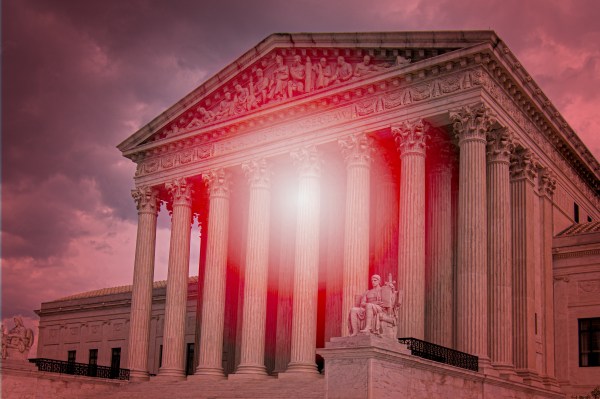
After CASA, a New Order in the Courts
Toeing the Company Line

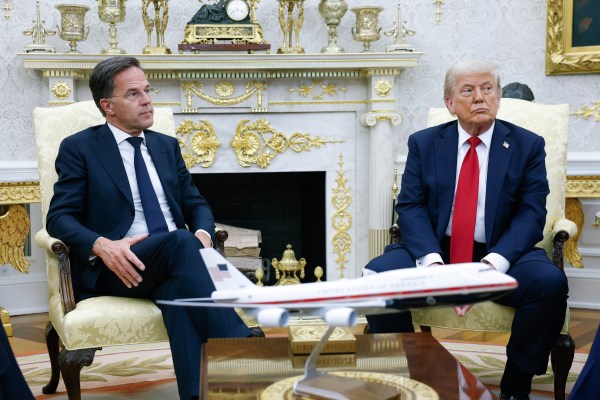
Tariffs Aren’t Sanctions
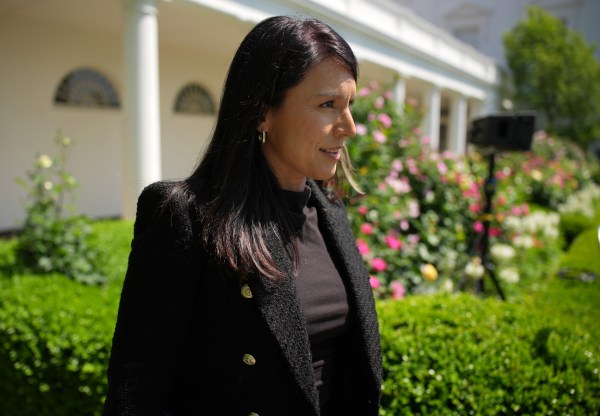
Tulsi Gabbard’s Revisionist History

New York House Dems Cool to Mamdani’s Mayoral Bid

Signing Away Constitutionality
Worth Your Time
- Everybody needs a summer vacation, even powerful authoritarians. But as Chinese President Xi Jinping prepares to retreat to his getaway of choice, The Economist reported, there are rumors that the leader has grown increasingly withdrawn from his role in the Communist Party. “President Xi Jinping will probably leave Beijing next week and join senior officials at the beach resort of Beidaihe, three hours east of the capital, for a summer retreat. Communist Party grandees have gathered in its villas since the days of Mao Zedong,” the outlet wrote. “This year’s summer conclave will reflect Mr Xi’s stunning success in remaking the party’s top ranks: the old guard are dead, senile or sidelined and loyalists reign. China’s paramount leader appears to have no serious rivals; he guides the world’s second-biggest economy and its largest armed forces seemingly unchallenged. … But analysts now whisper that Mr Xi’s governing style may be changing in subtle ways. Having originally strengthened a system of commissions in order to dominate the bureaucracy, he is dialling back. Certain commissions, which are a kind of committee run by Mr Xi, are convening less often. In others he is allowing trusted lieutenants to implement his agenda. And he is appearing in public less frequently. Yet far from challenging the authority of China’s party chief, these developments may only enhance it.”
- The Springs General Store in East Hampton, New York, first opened in 1847 and, since then, the store’s services have included selling groceries, breakfast sandwiches, and renting kayaks. In New York Magazine, Nora DeLigter covered the difficulties facing the shop’s new owners as they seek to keep it open amid resistance from the community. “In the fall of 2021, two brothers, Daniel and Evan Bennett, bought it. Now, nearly four years later, they’re still struggling to open its doors. … In a meeting [Daniel] told the [East Hampton] board he wanted to keep the store structure as it is and convert the kayak shed on the property into a retail wine shop.” That spooked some locals. DeLigter continued, “the mood around the project quickly started to change after the Bennetts posted their [off-premise drinking] permits, and the East Hampton Star published the story ‘Goodbye to Kayaks, Hello to Wine?’” Daniel reached out for a correction to the story, “But by then it was already too late: ‘It’s like everyone picked up their pitchforks and torches and said ‘Hell no,’ Daniel recalls.” Then, following a second meeting with the town board, they “laid out a new stipulation that the store must meet Americans With Disabilities Act compliance … The approximate cost for the changes was around $280,000, money that the Bennetts didn’t have.”
Presented Without Comment
Politico: White House Removes Wall Street Journal From Scotland Press Pool Over Epstein Bombshell
Also Presented Without Comment
U.S. Deputy Secretary of State Christopher Landau, in a post on X on Friday:
I’m constantly amazed by Japan’s highly developed hygiene culture. Toilet seats open and close automatically, deodorize, play music, are heated—things I expect to see in a sci-fi movie. Today I washed my hands in a beautiful bowl but am not sure if it was a sink or a bidet.
In the Zeitgeist
Indie band Lord Huron—best known for its 2015 hit, “The Night We Met”—released a new studio album on Friday. While its title, The Cosmic Selector Vol. 1, sounds more like a science fiction novel than a music album, that’s only fitting for a band whose frontman, Ben Schneider, draws inspiration from “one of these ghosts that we feel haunts our studio.”
Let Us Know
What potential effects do you see from political interference in the Federal Reserve?





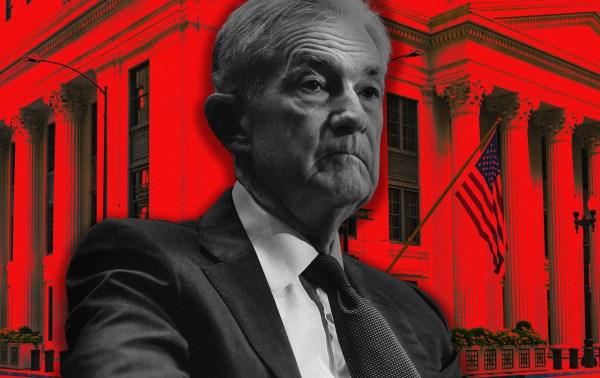
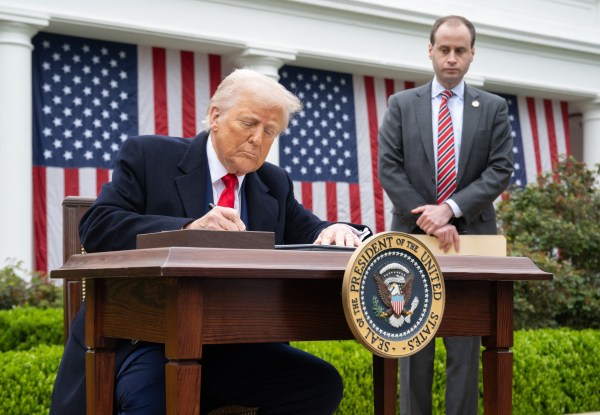

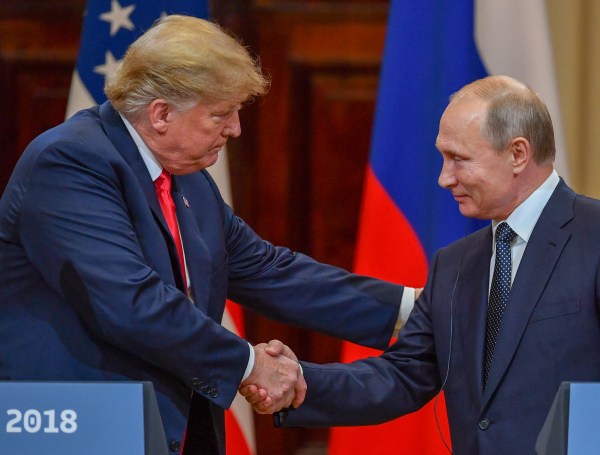



Please note that we at The Dispatch hold ourselves, our work, and our commenters to a higher standard than other places on the internet. We welcome comments that foster genuine debate or discussion—including comments critical of us or our work—but responses that include ad hominem attacks on fellow Dispatch members or are intended to stoke fear and anger may be moderated.
With your membership, you only have the ability to comment on The Morning Dispatch articles. Consider upgrading to join the conversation everywhere.